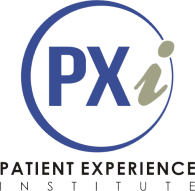Abstract
National approaches to collecting patient feedback provide trust level information which although can provide a benchmark for trusts often doesn’t provide information about specific services or patients experiences of pathways of care. This more granular level of data could be more informative for local service development and improvement. This research explored the feasibility and usefulness of such approaches. A conceptual model and standard questionnaire of patient experience was developed that might work across a range of services and pathways of care. Seven trusts were recruited as collaborating sites in which the model and survey instrument was tested. These were from different geographical locations and settings. The impact of the pilot and survey results on the improvement and development of services was evaluated. The service- line approach to capturing patient feedback was generally more feasible and considered of value for service improvement. The collection of patients’ experiences across pathways of care was more challenging in terms of the development of the survey and interpretation of results. However, many sites identified specific actionable areas for improvement. This study has shown that it is possible to develop and apply a standardised survey in a range of services and provides evidence that a consistent unified approach to monitoring patient experiences is feasible. However several methodological problems are acknowledged such as the availability of resources and capacity for improvements to services and care. Evidence is now particularly needed to establish how best to produce positive impact from patient feedback.
Recommended Citation
Gibbons EJ, Graham C, King J, Flott K, Jenkinson C, Fitzpatrick R. Developing approaches to the collection and use of evidence of patient experience below the level of national surveys. Patient Experience Journal. 2016; 3(1):92-100. doi: 10.35680/2372-0247.1118.
Creative Commons License

This work is licensed under a Creative Commons Attribution-Noncommercial-No Derivative Works 4.0 License.
Included in
Health and Medical Administration Commons, Health Policy Commons, Health Services Administration Commons, Health Services Research Commons


